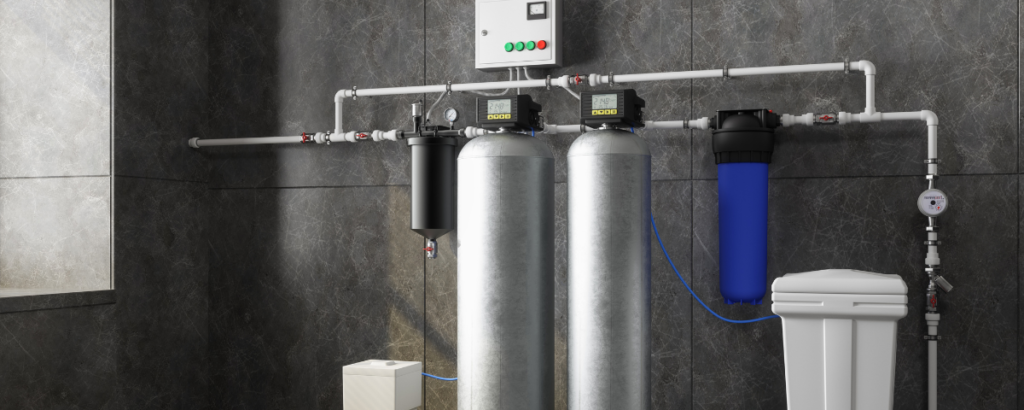
Advanced filtration systems: how they can save up to 40 per cent energy in beverage production
In the beverage industry, energy efficiency has become a crucial goal for many companies. Saving energy not only reduces operating costs, but also contributes to greater sustainability. Advanced filtration systems play a key role in this process, enabling companies to optimise their energy consumption. In this article, we will explore how the implementation of innovative filtration systems can lead to energy savings of up to 40 per cent in beverage production.
The Importance of Energy Savings in Beverage Production
The beverage industry is an energy-intensive sector, especially for water treatment, production, sterilisation and packaging. Companies must balance product quality and operational efficiency to maintain competitiveness. Saving energy is not only a matter of reducing costs, but also of optimising production processes, reducing environmental impact and improving overall sustainability.
In particular, energy consumption in beverage production depends largely on the efficiency of filtration processes. Advanced filtration systems not only improve the quality of water and liquids, but also reduce energy consumption, optimising the entire production process.
What is an Advanced Filtration System?
An advanced filtration system is a technology designed to purify liquids by removing impurities, bacteria, sediments and other unwanted substances without compromising the quality of the final product. These systems can be based on different methods, including mechanical filtration, reverse osmosis, activated carbon filtration and membrane technologies.
In beverage production, water treatment is a key aspect to ensure product purity and safety. Water is the main ingredient in many beverages, and its quality directly affects the taste, texture and shelf life of the product. The adoption of advanced filtration systems enables companies to maintain strict control over water quality while reducing energy costs.
How Advanced Filtration Systems Contribute to Energy Savings
- Optimisation of Filtration Processes: Advanced filtration systems are designed to be more efficient than traditional methods. Due to their ability to remove impurities in a more targeted and precise manner, these systems reduce the need for additional treatment, thereby lowering energy consumption. State-of-the-art filtration methods, such as low-pressure reverse osmosis and membrane filtration, are able to purify large quantities of water or liquids using less energy than traditional systems. In addition, advanced systems can automatically regulate water flow and pressure, reducing energy waste. For example, intelligent sensors built into advanced filtration systems allow continuous monitoring and optimisation of efficiency, avoiding overload and improving yield.
- Energy Recovery in the Filtration Process: Many of the advanced filtration systems incorporate energy recovery technologies to further reduce energy consumption. One example is the heat recovery system, which allows the thermal energy produced during the filtration process to be reused. This recovered energy can be used for other production steps, such as sterilisation or water heating, reducing the need for external energy. Another aspect concerns the use of low-energy pumps, which, thanks to their advanced technology, optimise water flow and reduce energy absorption. By recovering and reusing energy, companies can reduce overall energy consumption, leading to significant savings in operating costs
Energy Saving and Environmental Sustainability
The adoption of advanced filtration systems not only has a positive impact on company budgets, but also contributes to greater environmental sustainability. Reduced energy consumption means lower CO2 emissions, in line with global policies to reduce environmental impact and promote greener industrial practices.
Companies that invest in advanced filtration systems can not only improve their competitiveness, but also strengthen their public image as environmentally responsible. With consumers’ growing interest in eco-friendly and sustainable products, this is an important competitive advantage.
The Impact of Energy Savings in Beverage Production
Implementing advanced filtration systems brings numerous benefits, including saving up to 40 per cent of the energy used in beverage production. This saving translates into a significant reduction in operating costs, allowing companies to allocate resources to other crucial areas, such as innovation or market expansion.
In addition, more efficient use of energy contributes to more stable production processes, ensuring that the quality of the final product remains high, even during the most intensive stages of production. Drinks produced with advanced filtration systems are not only more environmentally friendly, but also of higher quality, better satisfying consumer demands.
Conclusions: The Importance of Filtration Systems for the Future of Beverage Production
The adoption of advanced filtration systems is one of the most strategic choices for beverage companies wishing to optimise their processes, reduce costs and improve sustainability. Not only do they allow significant energy savings, but they also offer an overall improvement in product quality and a positive impact on the environment.
Investing in innovative technologies is not only an economic necessity, but also a responsibility towards the planet. For companies in the industry, the future lies in advanced filtration systems that can make a difference in terms of competitiveness, efficiency and sustainability.
If you are a beverage industry professional and would like to learn more about how advanced filtration systems can optimise your production processes, we invite you to explore our blog. Learn more about innovative technologies, industry trends and solutions to improve energy efficiency in beverage production.



